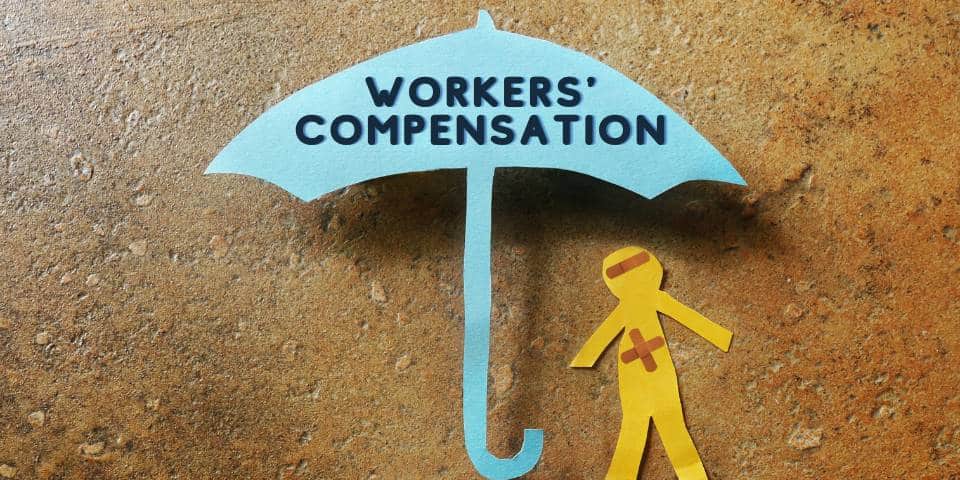Updated January 21, 2023
Workers’ Compensation Illness
Workers’ compensation often covers medical bills and lost wages for employees hurt due to slip-and-fall accidents, delivery truck collisions, and equipment malfunctions. It’s safe to say that most workers’ comp claims involving injuries to one or more employees are black and white. There is, however, another category of workers’ comp claims that is a more gray area than black and white. And that is the compensation for work-related illnesses or diseases.
Various work-related medical ailments, including repetitive strain, issues brought on by workplace stress, and occupational illnesses, including infectious diseases like COVID-19, may be covered by workers’ compensation benefits.
Regarding workers’ compensation legislation, there is a clear delineation between occupational and nonwork-related illnesses. For example, someone with lung cancer will have to show that their line of work was the direct cause of their illness. This is a complex procedure to navigate independently; having competent counsel can lessen the burden. A warning aspect of occupational illnesses is that they might develop gradually over time. Unlike a work-related injury that occurs unexpectedly and immediately.
The Most Common Workplace Illnesses Covered by Workers’ Compensation
You should be eligible for California workers’ compensation if you have a condition that your attorney can connect to an incident at work that causes your sickness or disease.
The most typical forms of occupational illnesses are listed below:
Repetitive Stress Disorder
Repetitive stress disorder is classified as an occupational illness even though it is linked to a personal injury since it takes so long for symptoms to manifest. Muscle problems brought on by daily repetitive actions may need remedial surgery.
Lung Disease
Once an occupational condition caused by prolonged asbestos exposure, lung disease today mainly affects industrial workers with consequences such as asthma, silicosis, and lung cancer.
Hearing Impairment
In addition to unpleasant headaches and tinnitus, hearing loss in one or both ears is a typical occupational ailment among airport employees.
Cancer
Workers exposed to harmful chemicals and hazardous waste have an elevated chance of developing cancer.
Skin conditions
Exposure to toxic substances may result in painful rashes, thermal burns, permanent scars, and cancer.
Others include:
- Brain damage
Carpal tunnel syndrome
Radiation poisoning
Pesticide exposure-related conditions
HIV/AIDS
Musculoskeletal Diseases
Stress and Mental Health Conditions
Vision Loss
If I Have a Health Problem Before Being Hurt on the Job, May I Still Get Workers’ Comp?
You are still eligible for workers’ compensation payments if a work-related accident worsens your preexisting condition.
Take the case of a back injury sustained while carrying a large item at work; however, x-rays or scans reveal that the patient already had arthritis in the same spine area before the workplace incident. Workers’ comp will likely pay for the new injury since it “lit up” the condition.
How To Prove Occupational Illness
Occupational illnesses are more challenging to show than particular work injuries since they are not often the consequence of on-the-job accidents or isolated traumatic incidents. However, you must show that your condition is work-related to get workers’ compensation payments.
It would be best if you showed the following to win a case alleging an occupational sickness was caused by your work environment or your actions while on the job:
- Occupational hazards or stressors contributed to your illness’s development or worsening.
- The illness was not something the general population is often exposed to outside their work environment.
- Nothing in your background or genetics would explain why you became sick.
In short, you must provide evidence that you were exposed to the illness in the workplace or were more likely to get it due to your job. This can be difficult when dealing with diseases like cancer, which might have several origins. Employers and their insurance providers are likely to contest or refuse these claims if they are not heavily backed up.
Filing for Occupation-Related Illness Compensation
Suppose you’re a federal employee; you must file an appraisal of occupational disease and claim for compensation with the U.S. Department of Labor, Office of Workers’ Compensation Programs, as soon as possible after notifying your employer. For state workers, your boss gives you a claim form for workers’ comp, which you send to the California Division of Workers’ Compensation. You have a maximum of 30 days from the day you were first aware of your illness to submit a claim in California. Waiting more than 30 days will need an acceptable justification.
Also, you’ll need to show that you became sick on the job by providing documentation of your sickness and its severity, such as medical documents. An experienced attorney specializing in workers’ compensation law may assist you in making the most compelling case possible for compensation and through the necessary legal hoops to get the most coverage possible.
California employment cases can be complex. Your employer will likely fight back. You need someone on your side to protect your rights and get the money you deserve.
Call Setyan Law at (213)-618-3655 for a consultation.





